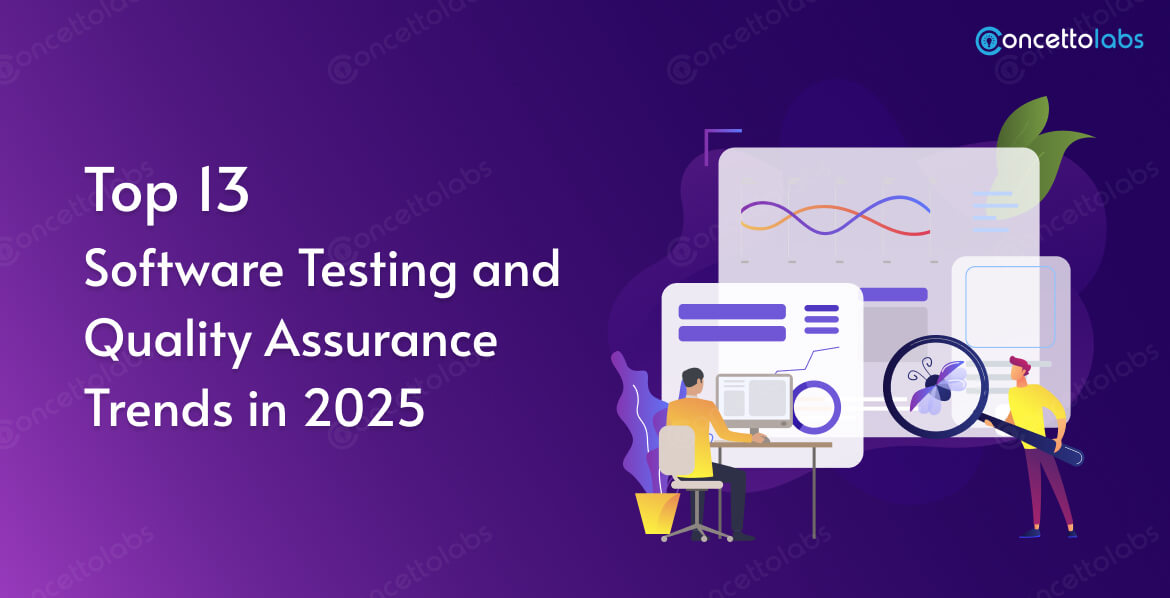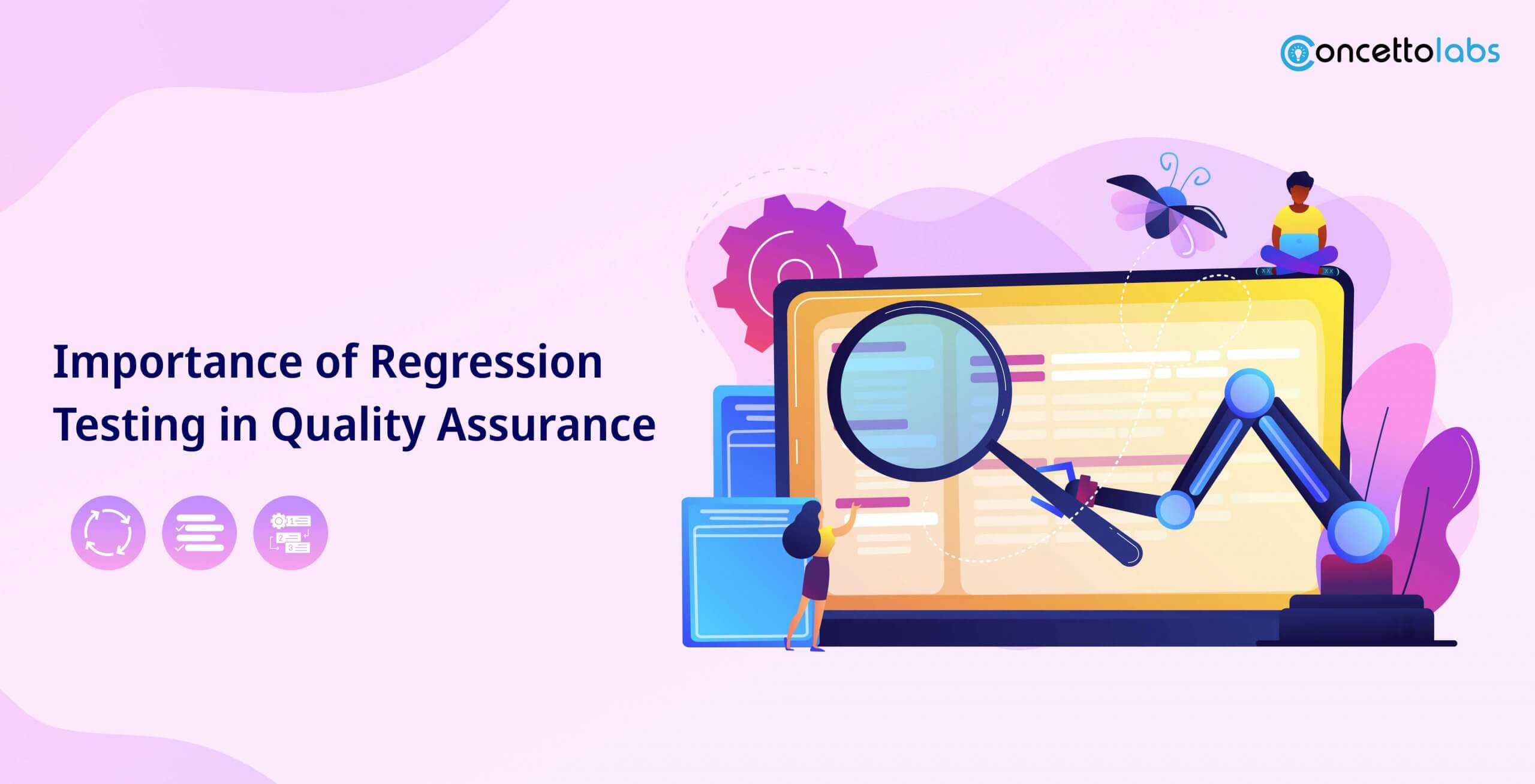
Summary: The blog emphasizes the use of automation tools to enhance efficiency and reliability in testing. By employing various frameworks, testers can automate repetitive tasks, perform regression testing, and ensure app functionality across various devices and platforms. Read this blog for more details on How to Automate Application Testing Processes.
The use of mobile applications is increasing in technologically advanced society and these applications are becoming an essential component of daily life. Users can transact for a variety of activities seamlessly due to mobile applications that offer significant convenience. More significantly, to provide a unique user experience (UX), organizations should ensure that their mobile applications are completely functional, scalable, and easy to use.
However, a number of issues like loading duration, security flaws, performance, broken links, confusing navigation, etc. frequently prevent mobile applications from offering a wonderful user experience. Thus, it is necessary to fix these issues in mobile applications to enable a flawless user experience. Therefore, companies who are looking to develop scalable, reliable, and fully working mobile apps must prefer to hire a QA Engineer.
What is Mobile Test Automation?
Test automation is a software testing methodology that employs automated mobile testing tools to evaluate various mobile application categories designed for portable electronic devices. Native, hybrid, and web applications are the three main primary categories of mobile applications, and test automation is applied to each of them.
Mobile test automation enhances the quality, usability, performance, security, and dependability of these applications while ensuring that they operate as intended. Businesses can gain a lot from using automated mobile app testing.
What are the Advantages of Automated Mobile App Testing?

Check out the below top 7 benefits of automating mobile app testing:
1. Quick Releasing of Application
Automating repetitive processes during the mobile app testing process saves a lot of time, accelerates the test execution process, and allows for quick releases.
2. Improved App Functionality
Automated mobile app testing ensures there are no problems or bugs linked to the functionality by thoroughly validating the operations of the application.
3. Ensures high Security of Application
Vulnerabilities in mobile app security can cause firms to suffer financial and reputational losses as well as identity and credential theft from customers. It is simple to find and fix security flaws in mobile applications by automating the security testing process.
4. Ensures Faster Loading of Application
Mobile application vendors must make sure that all of their Android and iOS applications development load quickly because a slow-loading application negatively affects the user experience. By eliminating defects from the application, automated mobile app testing guarantees a faster download speed.
5. Enhances Usability
App usability is increased when proper navigation, the placement of multimedia files, active links, accurate color contrast, high-quality photos, and other features are ensured by automated mobile app testing. These features make the application more user-friendly and increase its usability.
6. Verifies Application’s Compatibility
To provide a wonderful user experience, mobile applications should work with all operating systems, browsers, and gadgets. Testing for mobile compatibility guarantees your applications work with any combination of devices and operating systems.
7. Enhances App’s Scalability
Mobile applications that use automated load testing are also able to adapt to variations in user load and handle large user loads without experiencing any slowdowns.

Check out the Potential of Seamless Mobile App Testing
Enquire NowWhat are the Kind of Mobile App Testing: Manual vs Automated?
Read out the difference between Manual mobile app testing and Automated app testing
1. Manual Mobile App Testing
When testing an app manually, developers or test engineers compare its features, functionalities, and users to a variety of test cases, mobile devices, and emulators. When the features of the application get more complicated, the manual testing method becomes more labor-intensive, time-consuming, and prone to human mistakes. It is also challenging to scale.
2. Automated Mobile App Testing
By using specialized tools to run and manage test cases, automated mobile app testing cuts down on testing time. The finest applications for automated testing are large-scale projects that need frequent or continuous testing of pre-written scripts. The reason for this is that we can run several tests concurrently across various mobile frameworks or components.
What are the Factors to Consider for Mobile Test Automation?
Testing strategy plays a major role in the mobile app testing success. Hence, for a mobile app testing procedure to be successful it is important to follow certain rules and regulations. The following are some of the important factors to consider before conducting mobile test automation:
- Test mobile applications using emulators and simulators as well as actual devices.
- Test mobile applications across different OS tiers.
- Examine mobile applications across various device configurations
- Examine mobile applications across several networks
- Test mobile applications across various locales.
- Check mobile applications for different screen sizes and other details
What are the Ways to Automate Mobile App Testing?

There are total 4 ways to automate mobile app testing:
1. Make a Strategy and Mention the Types of the Tests
For mobile app testing, selecting target devices with several screen sizes is crucial in developing a test strategy. Determining the kind of testing that needs to be done on the mobile application – functional, front-end, back-end, etc. is also required. It is necessary for testers to determine if the mobile application they are testing is a web, hybrid, or native application.
2. Create Test Cases and Scripts
Creating test cases for every application function is the next stage. Test cases ought to cover things like memory use, app speed, battery life, etc. It is important to create reusable automated scripts that may be modified in accordance with project requirements.
3. Establishing the Test Environment
To establish the test environment, it is necessary to download, install, and configure the program on the testing device. Prior to beginning the actual mobile app testing procedure, create the test version of the application.
4. Conduct Various Tests
Testers should prefer to use a variety of test automation tools to conduct the tests. Mobile applications undergo a variety of test types.
5 Top Automation Tools for Mobile Application Testing

1. Appium
For automated mobile application testing, Appium is a well-known open-source platform. It enables programmers to test native or hybrid iOS and Android applications automatically. Appium is a collaborative tool. Using the WebDriver Interface, it executes the test cases.
Features of Appium
- Provide platform-specific automation features via a standard, cross-platform API.
- Make this API accessible for any programming language
- Give the community the resources they require to easily develop Appium extensions.
- Allows for a broad variety of app kinds and supports the automation of mobile, hybrid, and native web applications
- Integrates with Xamarin, Flutter, and React Native three cross-platform frameworks for mobile app development.
- Offers integrated tools for inspecting app parts and creating test scripts for example Appium Desktop and Appium Inspector.
2. NightwatchJS
BrowserStack is the developer and maintainer of the Node.JS framework NightwatchJS. Under the hood, Nightwatch leverages Appium to automate mobile applications on both real and virtual devices and simulators. Moreover, Nightwatch manages the complete installation with a single command.
Features of NightwatchJS
- To run your tests, set up SDKs and libraries using a single command.
- Natural Nightwach utterances
- Integrating with Appium Inspector
- Allows parallel test execution, which speeds up test execution by enabling you to run tests on several browsers and devices at once.
3. EarlGrey
The testing framework EarlGrey, created by Google is useful for developing UI and functional tests. EarlGrey 2.0 allows testing of iOS in addition to Android by integrating EarlGrey with XCUITTest. Google tests iOS versions of its apps, including Gmail, YouTube, and others with EarlGrey.
Features of EarlGrey
- By simulating user interactions with the application’s UI elements through tests, EarlGrey employs an interaction-driven
- methodology. This method encourages testing scenarios that are realistic.
- Facilitates the testing of native iOS UI elements including tab bars, navigation controllers, and alerts.
- Creates EarlGrey test scripts in Objective-C or Swift to enable developers with varying language preferences to use it.
- Allows for the parallel running of tests on several devices
- Automate intricate actions and interactions, such as pinching, swiping, scrolling, and tapping with several fingers.
4. Espresso
Google’s Espresso is a mobile automation framework that makes it possible to write and run user interface tests for Android apps. Espresso is a popular tool among app developers and testers since it is crucial to evaluate an application’s user experience before releasing it. It is possible for developers to set up a scenario and record user interactions with a device. After that, they can include assertions that use snapshots to confirm how the application’s UI elements behave. They can utilize the tool to test their application by creating a UI test case.
Features of Espresso
- During Development cycles, it permits testing of individual components as well as black-box testing.
- Developers will be able to test hybrid web views in addition to native Android views due to this strong infrastructure.
- It is possible to write an Espresso test case in Java or Kotlin
5. Selendroid
For Android mobile apps, Selenium is another name for Selendroid. With Selendroid, testers can test both native and hybrid mobile applications. Like Selenium, Selendroid can run test cases in parallel across several devices for cross-browser testing.
Features of Selendroid
- Test Android applications, both natively and hybridly automatically.
- Able to automate native and hybrid app testing, as well as web app testing on the Android browser.
- It is possible to create test scripts using Selendroid in various programming languages including Python, Ruby, C#, and Java.
- With Selendroid’s automated gesture support, users can create realistic user interactions in their favorite tests by swiping, tapping, and pinching.
What Challenges Do Testers Face While Performing Mobile Automation Testing?
1. Device-OS Fragmentations
Users can now access mobile applications using a variety of mobile platforms and devices. As a result, testers must evaluate mobile applications across a wide range of hardware and operating systems, which can occasionally be difficult.
2. Choose the Best Test Automation Tool
There are various test automation tools available, but it can be difficult to choose which test is appropriate for a given project or mobile application.
3. Opt for the Best Test Automation Strategy
Since test automation strategies vary depending on the domain and the needs of the project, there is no one-size-fits-all method. As a result, developing the best test automation method presents difficulties for testers.
4. False Positives and False Negatives
These two issues can lead to faulty testing and are one of the main problems that testers encounter when using test automation
5. Inadequate Teamwork
Inadequate teamwork is another difficulty testers encounter during test automation. This typically occurs when testers and developers collaborate on a project independently.
Conclusion
Automated mobile app testing is a difficult undertaking. It is possible to conduct an efficient automation text with technologies that meet the budget and selection requirements.
An efficient and timely automation project delivery that results in a stable and bug-free app and wins the satisfaction and gratitude of the app client requires careful consideration of a number of factors, including the availability of tools and compatibility, network and environment setup, recording and location elements on UI tricks, and system configuration for desktop and server machines.
To create scalable, reliable, and high-performing mobile applications, enterprises must now use sophisticated mobile test automation. For high-quality mobile applications that enable an excellent user experience, businesses must use application automation testing tools and hire QA Engineer and software testing service provider.









 Indonesia
Indonesia
 Botswana
Botswana
 USA
USA
 Italy
Italy
 Panama
Panama









 USA
USA UK
UK Saudi Arabia
Saudi Arabia Norway
Norway India
India Australia
Australia